The Scientist

Rethinking what causes Parkinson’s: Studies suggest we may be looking in the wrong place
During her time as a postdoc at the University of Basel in Switzerland, Sarah Shahmoradian decided to study the abnormal aggregates of ...

Beware claims by consumer DNA testing companies: They can’t predict how long you’ll live
“Upload DNA data and know more about yourself,” promises Genomelink, anywhere from fitness-related attributes, such as longevity, pulmonary function, and job-related ...
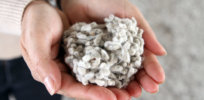
FDA-approved edible cotton could help meet global protein demand
The US Food and Drug Administration announced this month that a genetically modified cottonseed has been approved for human consumption ...
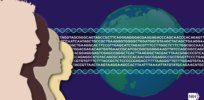
Time for an upgrade? Swedish study reveals thousands of genetic sequences not found in human reference genome
[I]t’s hard to study genetic sequences if they’re absent from the human reference genome, the product of the $2.7 billion ...
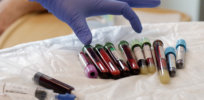
Blood test reveals epigenetic modifications that could predict life-threatening type 2 diabetes complications
Chronically high blood sugar levels in type 2 diabetes can damage tissues throughout the body, such as the nerves, eyes, ...

Exploring origins of the female orgasm. Is it an ‘evolutionary throwback’?
The female orgasm might have evolved as part of a biological mechanism to induce ovulation, according to findings published [September ...

Viewpoint: We aren’t ready for biomarkers that could predict how long we’ll live
Over the past several years, scientists have identified four genetic and molecular biomarkers that potentially predict human and animal longevity ...
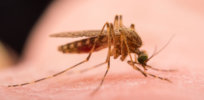
GMO mosquitoes produced hybrid offspring in the wild? New study says yes—but under fire from critics
A field experiment in Brazil that deployed genetically modified mosquitoes to control wild populations of the pest may be having ...
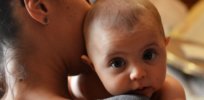
Harmless mutations may cause serious illnesses when combined together, case study shows
In 2008, pediatric cardiologist Deepak Srivastava treated a newborn baby who suffered from acute heart failure and had to be put on ...

We’re different. We’re the same. Genomic databases require diversity to illuminate human commonalities and disparities
I edited this month’s Critic at Large essay, a piece from Jackson Laboratory Scientific Director Charles Lee on the need to inject large-scale genomic ...
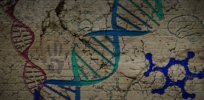
‘Beneficial archaic DNA’ still present and impacting humans today
Most Neanderthal variants exist in only around 2 percent of modern people of non-African descent. But some archaic DNA is ...

Meet Garlic, China’s first ever cloned cat
Devastated by the death of his previous cat, Garlic, Huang [Yu] sought the services of biotechnology company Sinogene. The Beijing-based ...
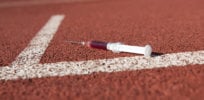
Biological passports? How anti-doping organizations catch cheating athletes
As athletes experiment with drugs that can help give them an edge over their competition, they tweak their strategies to ...

Processed foods key factor in uptick in colorectal cancer among young adults?
Although still rare, affecting roughly 4 percent of adults over their lifetimes, according to the National Cancer Institute, colorectal cancer is becoming ...
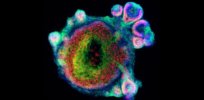
Transplant shortage? Don’t generate human organs in animals, use stem cell technology to develop organoids
Xenotransplantation experiments, generating human organs in animals for transplantation, are being conducted in sheep, pigs, and, recently, in nonhuman primates ...
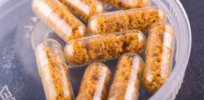
Infographic: How fecal transplants work against recurrent C. diff infections
Today’s data show that fecal transplants cure 80 percent to 90 percent of patients with recurrent C. diff infections—and doctors ...
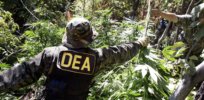
Researchers may get better access to marijuana if DEA follows through on latest pledge
[August 26], the Drug Enforcement Administration announced plans to create new regulations to expand scientific and medical research on marijuana ...
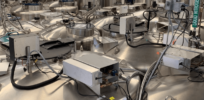
This company wants to freeze your T cells for future cancer treatments. Experts call the idea ‘unproven’
A new cryopreservation bank offers customers the chance to stash away their T cells for use in future cancer treatments ...
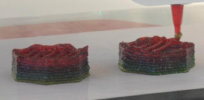
Personalized nutrition companies are more hype than help, scientists say
Vitamins and other dietary supplements are a $30 billion industry in the US. In addition to the bottles lining drugstore ...
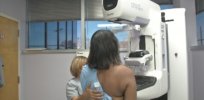
Expanded screening recommended for BRCA breast cancer gene. Federal panel stops short of suggesting all women should be tested.
On [August 20], the US Preventive Services Task Force, a panel of federally appointed independent experts that makes recommendations about ...
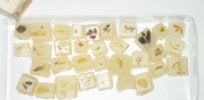
Scientists extract ‘near-complete’ HIV genome from 50-year-old tissue sample found ‘sitting in a drawer’
Scientists extracted a near-complete HIV-1 genome from a lymph node that had been preserved in wax for more than 50 ...
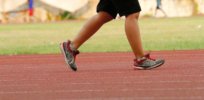
Exercise creates a ‘unique microbiome’ in our guts. We don’t know why.
Teaming up with microbiologists and toxicologists from Rutgers and a pathologist from Oklahoma City, [researcher Sara] Campbell designed an experiment ...
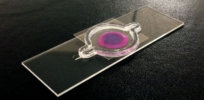
Infographic: ‘Why not print cancer?’ Here’s what we learn from building glioblastoma on a chip
If arranging cells in a particular formation was a good way to build cancer models that mimic what’s going on ...
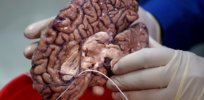
‘It’s very encouraging’: Experimental gene therapy shows promise for glioblastoma patients in clinical trial
An inducible, tumor-localized gene therapy has been tested for the first time in glioblastoma patients. The two-part approach, which involves ...
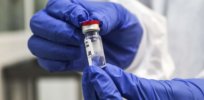
Infographic: Building personalized cancer vaccines
To create an individualized cancer vaccine, researchers must identify cancer-specific peptides called neoantigens, then use a cell-, protein-, or nucleic ...
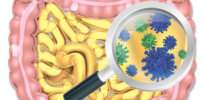
Which is more important to the gut microbiome? Genetics or environment?
Genetics hold far more sway over the mouse microbiome than transient environmental exposures, researchers reported July 26 in Applied and ...
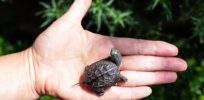
Can these turtle embryos change their sex by finding warmer or cooler spots within their eggs?
At 27.9 °C, roughly equal numbers of female and male turtles will emerge from the nests of the Chinese pond ...
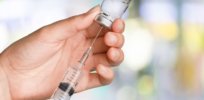
Fighting cancer by stimulating the immune system with injections directly into the tumor
This past April, Mount Sinai oncologist Joshua Brody and his team announced a clinical trial that delivers immune modulators directly ...

